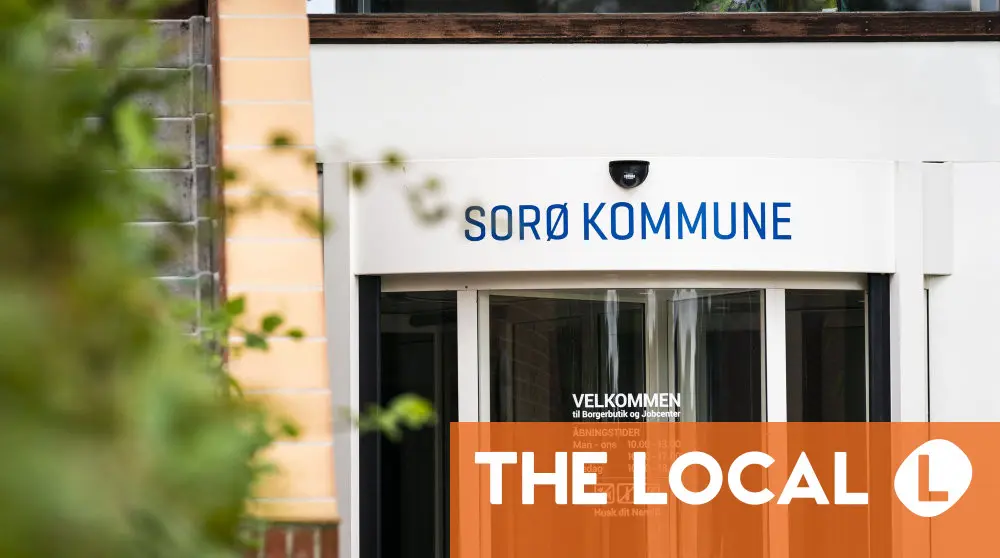Police stories as suspected attacker shot, suspected drug smugglers apprehended and tolerance zone expanded are among the news in Denmark this Thursday.
Police shoot suspected attacker after object thrown at Sorø Town Hall
Police in South Zealand yesterday shot a suspected attacker after an object was thrown at Sorø Town Hall.
In a statement, police said a patrol already present at the scene made contact with the suspected perpetrator when the incident occurred at around 9:40am.
“Shots were fired during the arrest, and the suspected perpetrator was hit,” the statement said.
The individual was taken to hospital. Police did not disclose their condition or where they were hit.
No one else was injured in the incident.
Although police did not give further detail about the object thrown at the building, Søro mayorGert Jørgensen told local media Sjællandske Nyheder that he had been told the object was a Molotov cocktail.
The Independent Police Complaints Authority (Den Uafhængige Politiklagemyndighed, DUP), will investigate the incident, in line with procedure when the police fire shots in Denmark.
Police arrest seven gang-linked suspects in cannabis smuggling case
Seven people with ties to gang networks were yesterday arrested on suspicion of large-scale cannabis smuggling and distribution.
Special police unit NSK said around two tonnes of cannabis had been brought into Denmark in six separate deliveries between May 2024 and February 2025.
The arrested individuals tied to the deliveries, aged between 23 and 64, are believed to be part of an organised drug network in the Copenhagen area. NSK confirmed they are linked to organised crime circles but did not say which gangs are involved.
Police suspect the cannabis was smuggled into the country by foreign lorry drivers and then distributed to organised criminals, news wire RItzau writes.
Advertisement
“This operation has disrupted an organised criminal drug network with international connections,” Lars Feldt-Rasmussen, Deputy Inspector at NSK, said in a statement.
“We believe the network has ties to crime gangs and was responsible for smuggling significant quantities of cannabis into Denmark for onward distribution,” he said.
Police expand drug tolerance zone in Copenhagen
The area of Vesterbro in Copenhagen where it is legal for drug addiction sufferers to take drugs without prosecution has been expanded, police confirmed in a statement yesterday.
Drug use was late last year decriminalised within designated zones for individuals with links to supervised locations known as ‘fixing rooms’ or fixerrum in the area. The purpose of the locations is to give addiction sufferers a secure and controlled environment when they take drugs.
The zone has now been extended to include the area around Gasværksvej 24, where a new fixing room is opening.
“The zone is being expanded because the law states that it must be in the immediate vicinity of drug consumption rooms,” Jonas Wybrandt, Deputy Inspector with Copenhagen Police, said in the statement.
Advertisement
“The officers who patrol Vesterbro visit the consumption facilities several times a day. That means they know the people who use them, and the users know the officers. This helps create a safer environment for the drug users,” Wybrandt said.
Anyone over the age of 18 who, due to addiction, intends to use drugs in one of the designated facilities within the expanded zone will not be prosecuted for possessing those drugs.
The move comes as the government prepares to introduce its so-called ‘dignity reform’ or værdighedsreform, which will allow addiction sufferers to legally carry drugs anywhere, not just in the areas surrounding the supervised facilities.
DR defends need for login to watch shows
Broadcaster DR has defended a highly-criticised decision to demand users of its website and app create a login to view the vast majority of its content.
The login forces users who want to view any non-livestreamed content on DRTV to create a login using their email address.
That has resulted in criticism of the public service broadcaster, which receives 3.7 billion kroner in state funding annually, because it is asking viewers for data in order to access something they have already paid for through taxation.
DR argues that the login gives users the option of more personalised DR services, if they want to make use of them. It also lets the broadcaster know more about which programmes are accessed most on different devices such as televisions, mobiles and tablets.
